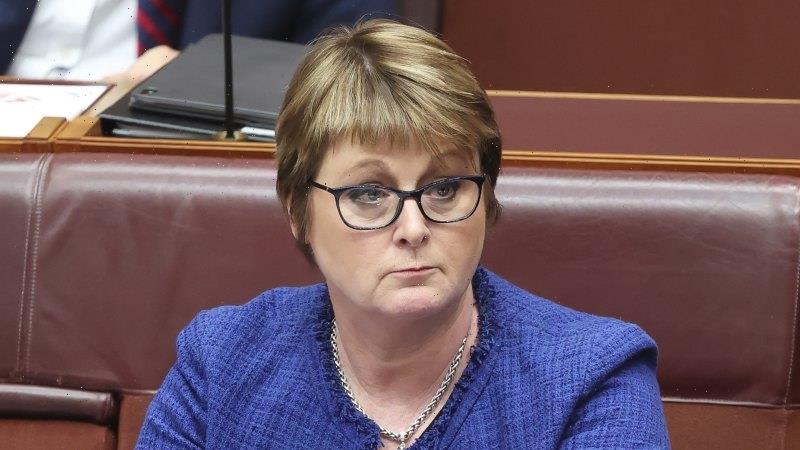The agency running the National Disability Insurance Scheme (NDIS) spent nearly $22 million on external legal fees in the last financial year as the number of tribunal complaints about the scheme rose by more than 1000 in the last six months.
In that period, complaints about NDIS plans to the Administrative Appeals Tribunal have increased by 400 per cent compared to the last six months of 2020, while complaints about accessing the scheme rose by 58 per cent over the same period.
Linda Reynolds, Minister for the National Disability Insurance Scheme, has previously said the scheme has financial stability issues.Credit:Alex Ellinghausen
But the agency defended the spending, saying it pays market rates for lawyers, and NDIS-related tribunal hearings made up only a fraction of all NDIS participants.
NDIS Minister Linda Reynolds has previously warned the scheme had serious sustainability issues, after a report released by the National Disability Insurance Agency (NDIA) in July forecast NDIS spending would grow to $40.7 billion in 2024-2025 – $8.8 billion higher than previous estimates.
Social Services Minister Anne Ruston and officials from the agency and the Department of Social Services will face a senate estimates hearing on Thursday afternoon.
Invoices show lawyers with as little as two years’ experience, who were seconded to the agency, being paid $30,000 a month.
Public servants on the APS6 pay grade level typically earn between roughly $86,650 and $96,140 a year.
But one external lawyer, with about five years experience and whose work was described on the invoice as APS6 level, was paid $30,000 for a month’s worth on secondment – itemised as $1500 a day. That works out to about $360,000 a year.
Another lawyer, hired by the NDIA on secondment was paid $1200 a day, which works out to be about $300,0000 a year. This lawyer worked as a legal officer for less than two years before joining the NDIA as a lawyer.
There’s no suggestion the lawyers are not capable of performing their roles appropriately.
A spokesperson for the Acting Minister for the NDIS, Anne Ruston, said the NDIA has an obligation to ensure the proper administration of the NDIS Act in tribunal matters.
“The legal spend reflects the increase in the number of NDIS participants, which flows onto the appeal process,” the spokesperson said.
“Last year the external legal spend on AAT matters was $17 million, for a $23.3 billion scheme.”
In total, the NDIA spent $21.6 million in external legal expenses in 2020-2021, and $23.2 million in 2019-2020.
Labor’s NDIS spokesman Bill Shorten said the Morrison government was spending millions of dollars on taxpayer-funded lawyers “to wear down and crush self-represented NDIS participants.”
“It’s litigation by attrition. The Morrison government outspends participants to the point that they surrender,” he said.
The legal spend covers more than just lawyers and tribunal hearings, however. It includes medical experts and evidence, including occupational therapist assessments. It also covers commercial law, property and leases, and information law.
An NDIA spokesperson says it contracts additional legal staff to meet demands, and it pays market rates for those services.
Under questioning from Greens disability rights spokesman Jordon Steele-John, Administrative Appeals Tribunal acting registrar Jamie Crew told senate estimates on Tuesday the number of complaints about the NDIS has grown, from 2116 in 2020-21 to 3140 in the six months from July 1 last year to December 31.
“There was a 58 per cent increase from this six-month period just gone against the same period last year for access to the scheme. There was a 400 per cent increase in that period against the same period last year in relation to plans,” he said.
Government data shows that the number of tribunal cases represents just 1.55 per cent of all active NDIS participants.
A week ago, the NDIA appointed Sian Leathem as its new complaints commissioner, announcing the appointment on its LinkedIn page.
Previously, Ms Leathem was the registrar of the Administrative Appeals Tribunal, which reviews government decisions including appeals of changes to NDIS packages. She resigned from that position in late December after facing accusations from senators that she had misled Parliament.
The Morning Edition newsletter is our guide to the day’s most important and interesting stories, analysis and insights. Sign up here.
Most Viewed in Politics
From our partners
Source: Read Full Article

